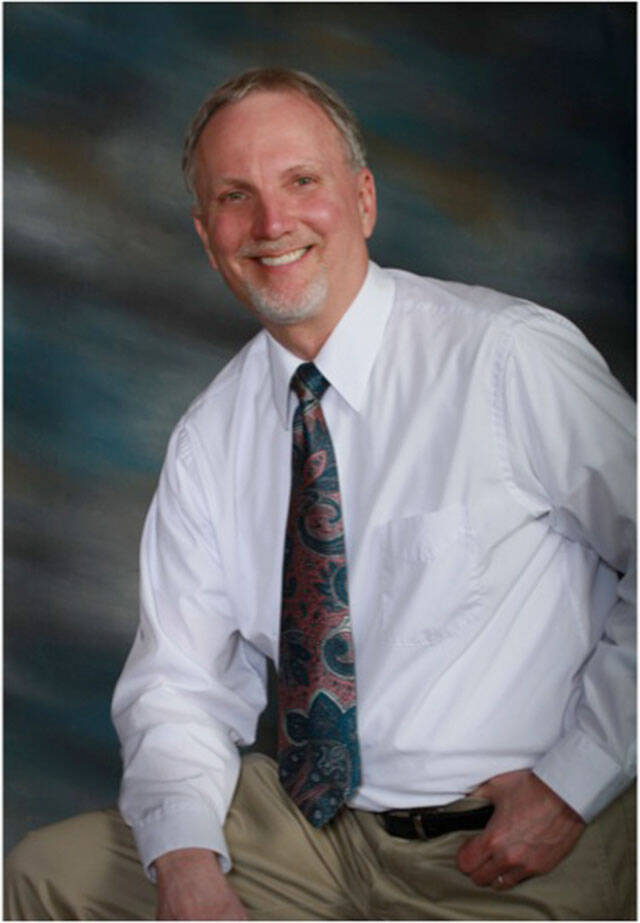In November 2016, Danny Westneat, writer for the Seattle Times, called me to ask about my reaction to the 42 to 49 percent vote for Donald Trump for president in Enumclaw. The rest of King County voted overwhelmingly for Hillary Clinton. He quoted me in his article saying that I was concerned about the potential of a civil war emerging in the United States. I felt a little uncomfortable making such a statement publicly.
But after watching what happened between Jan. 20, 2017 and Jan. 6, 2021 and afterward, those fears reemerged. Barbara F. Walter, a Rohr Professor of International Relations at UC San Diego, did extensive research on hundreds of civil wars over the past two centuries. I recently read her book, “How Civil Wars Start and How to Stop Them” published in 2022.
Walter states in her book, “It’s not likely to be a coincidence that the global shift away from democracy has tracked so closely with the advent of the internet, the introduction of smart phones, and the widespread use of social media.”
She describes how Rodrigo Duterte, “a nobody” in her words, rose from mayor of the city of Mindanao to become president of the Philippines using social media. Duterte’s social media experts used those platforms to magnify social discontent with the government of the Philippines and to praise Duterte. He criticized the mainstream media as “an arm of the political elite, questioned institutions, and painted the political establishment as corrupt…. Facebook was essential to Duterte’s win in 2016”, Walter writes. “It’s become a pattern: social media is the vehicle that launches outsiders with autocratic impulses to power, riding a popular wave of support. We’ve seen it with Erdogan in Turkey and Modi in India…. All were social media savvy dark horse candidates…. Social media offers these candidates not only an unregulated environment but also multiple platforms from which to disseminate information and propaganda.”.
Recep Tayyip Erdogan uses Islamism versus secularism and divisions between rural and urban voters while Narendra Modi polarizes India by promulgating the superiority of Hinduism over Islam. Both rose to power using these divisive approaches through social media.
According to Walter, “Before the rise of social media, politicians had to get past party leaders, and major news media. Now any candidate or party, no matter how far on the fringes, can gain control of the narrative. Their methods are to incite fear and outrage—to disseminate lies about their opponents and a country’s institutions to a mass audience… To make good decisions about candidates in democracies, voters must have good information, and social media has flooded voters with bad information. As people lose faith in the democratic process, they are more apt… to place power in the hands of the charismatic individuals who promise protection and a certain future.”
Walter describes those in the U.S. who have traditionally held power as “sons of the soil”, who see their traditional power slipping away as demographics shift the voting balance of power. These autocrats use race and religion to instill fear and provide scapegoats to “kick down on” — i.e. minorities — who are rising in political power.
“A movement turns to violence when all hope is lost. As the storming of the Capitol [on Jab. 6, 2021] made clear, citizens on the right are not just resentful of their declining status, they now believe that the system is stacked against them…. Americans across the political spectrum are becoming more accepting of violence as a means to achieve political goals, not less…. America’s extremists are becoming more organized, more dangerous, and more determined, and they are not going away,” Walter says.
Walter’s solution for the ills of democracy is more democracy. Franklin Roosevelt used this approach during the Great Depression of the 1930s, and it kept the U.S. from sliding into fascism which occurred in Germany, Italy, and Japan — all democracies. The U.S. government created road and bridgebuilding jobs and construction projects in national parks for the unemployed. FDR also supported creation of union programs that protected workers, helped families who had difficulty providing for their children, and got Congress to pass laws taxing the ultrarich. Walter advocates for these programs in the U.S. at this time.
There is a delicate balance between First Amendment free speech rights and protecting the general welfare — the common good. Reining in social media is a bi-partisan issue that Congress can use to unite rather than divide the nation. It is within our power to end the threat of civil war if only we have the will to act.


